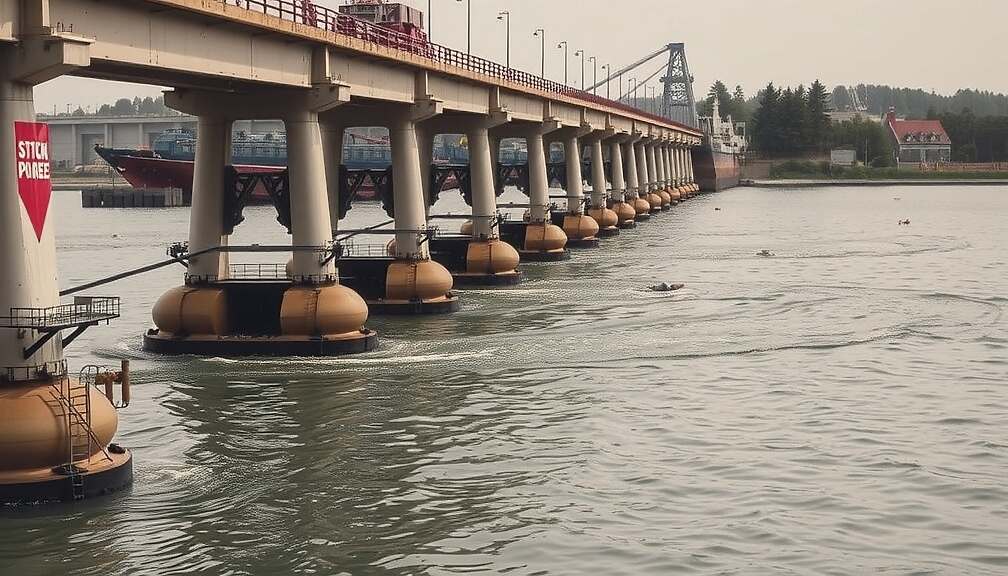A looming financial shortfall threatens the viability of Germany’s inland waterways, according to a recently leaked internal paper from the Federal Ministry of Transport. The document, reported by multiple German news outlets, reveals a projected deficit of approximately €2.8 billion needed for essential maintenance and replacements across the nation’s critical waterway infrastructure.
The most alarming aspect of the situation revolves around 26 “system-critical” structures, principally dams, already planned for upgrades but lacking secured funding. These facilities, fundamentally responsible for regulating water levels, are deemed “high safety relevance” due to their inability to be easily shut down in emergency situations, a stark contrast to bridges or locks. Beyond these crucial dams, the shortfall also jeopardizes the refurbishment and replacement of 24 locks and the construction of 39 new bridges – all critical for the ongoing functionality and safety of Germany’s waterways. These deficiencies span the country and a failure to address them risks forcing the permanent closure of these vital components. Planned flood defense measures are also facing uncertainty due to the precarious financial situation.
The Ministry’s paper indicates that between 2025 and 2027, the focus will remain solely on fulfilling existing contractual obligations, leaving any necessary emergency repairs or cost increases entirely unfunded. This situation is projected to exacerbate the financial gap significantly by 2029.
The findings have drawn sharp criticism from within the German parliament. Tarek Al-Wazir, Parliamentary Chairman of the Transport Committee for the Green Party, condemned the government’s prioritization, stating it was “utterly incomprehensible” that a coalition government, possessing a €500 billion special fund, was unable to allocate sufficient resources to vital transportation infrastructure. He emphasized the devastating consequences of underfunding, particularly highlighting the lack of viable alternatives for waterway traffic – unlike road networks where diversions can be established.
“If dam and lock systems fail, it’s not just about increased road traffic; it’s about substantial cost implications for companies like BASF and Volkswagen who rely on efficient waterway transport” Al-Wazir asserted, underscoring the economic ramifications of the impending crisis. The situation raises serious questions about the government’s commitment to maintaining essential infrastructure and securing the stability of key industries reliant on Germany’s inland waterways.












